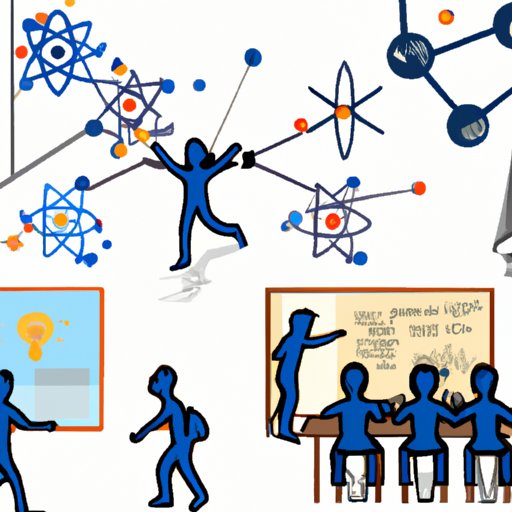Introduction
Social science is an interdisciplinary field that combines many different areas of study to better understand human behavior, culture, and society. It encompasses a wide range of disciplines, including history, economics, sociology, anthropology, political science, psychology, and more. By studying social science, students can gain a deeper understanding of how societies function and how individuals interact with one another.
Understanding social science is especially important in today’s increasingly interconnected world. As globalization continues to bring people together, it’s essential to have an appreciation for different cultures and perspectives. Social science classes can help students develop empathy and learn to think critically about the world around them.
A Comprehensive Overview of Social Science Classes
Social science classes cover a broad range of topics, from the history of civilizations to the dynamics of contemporary societies. Depending on the course, students may be exposed to different areas of study, such as economics, sociology, anthropology, political science, and psychology. These classes can also provide insight into other disciplines, such as law, medicine, and public health.
When taking a social science class, students can expect to learn about different theories and concepts, as well as engage in critical thinking and analysis. The courses often involve reading assignments, written essays, presentations, and research projects. In some cases, they may even include field trips or service-learning activities.

How Social Science Classes Help You Understand Society
By taking social science classes, students can gain a deeper understanding of how society works. For example, a sociology course might explore how different social institutions shape people’s lives and how these institutions can be changed for the better. A psychology class might discuss various theories of personality and how they influence behavior.
Social science classes can also help students learn more about current issues and debates. For instance, a political science course might examine the causes of poverty and inequality, while an anthropology course could explore the effects of colonialism on indigenous cultures. Through these classes, students can gain a greater appreciation for diversity and learn to think critically about the world around them.
In addition, social science classes can provide students with valuable skills that can be applied in their everyday lives. For instance, a course in economics can teach students how to analyze data and make informed decisions. A course in psychology can help students better understand themselves and others. And a course in sociology can help students understand the complex social systems in which they live.
Conclusion
Social science classes are an important part of any student’s education. They provide students with a deeper understanding of how society works and how different cultures and perspectives interact. Additionally, social science classes can equip students with valuable skills that can be applied in their everyday lives. Ultimately, by taking social science classes, students can gain a greater appreciation for diversity and learn to think critically about the world around them.
(Note: Is this article not meeting your expectations? Do you have knowledge or insights to share? Unlock new opportunities and expand your reach by joining our authors team. Click Registration to join us and share your expertise with our readers.)
